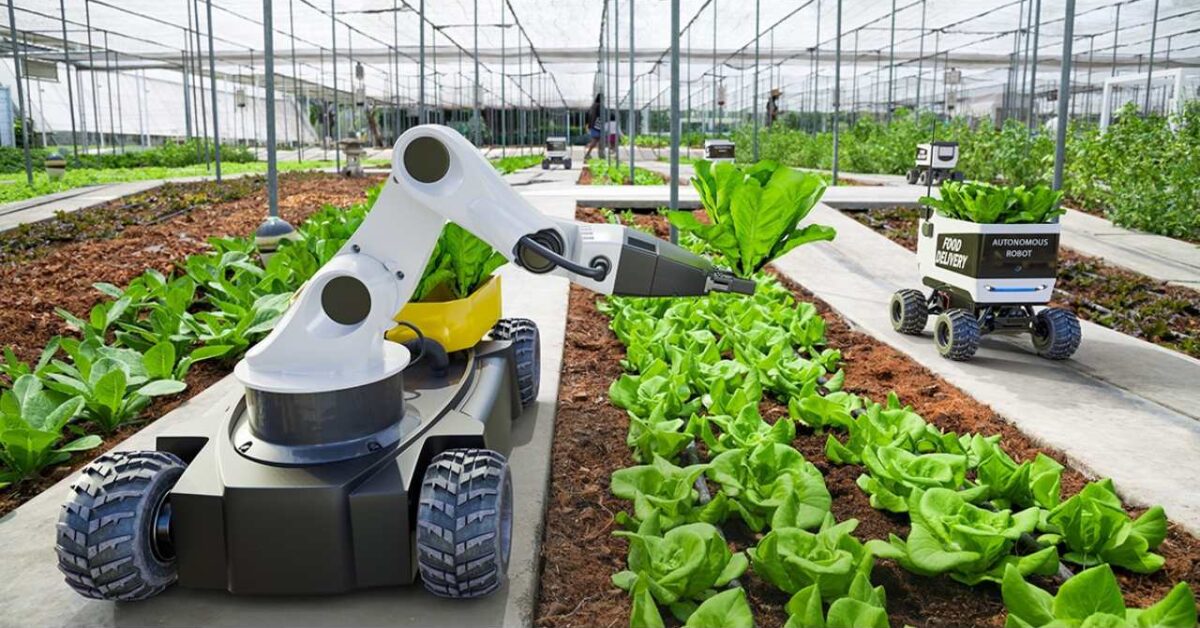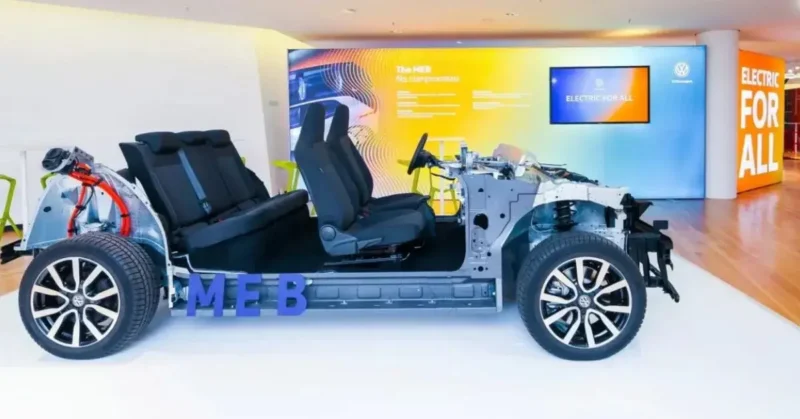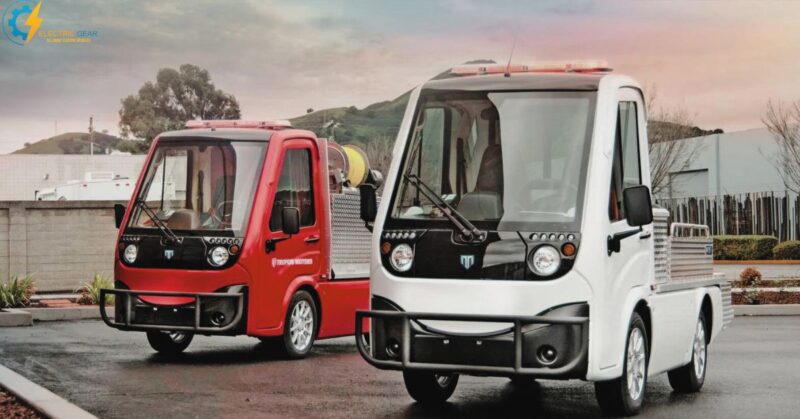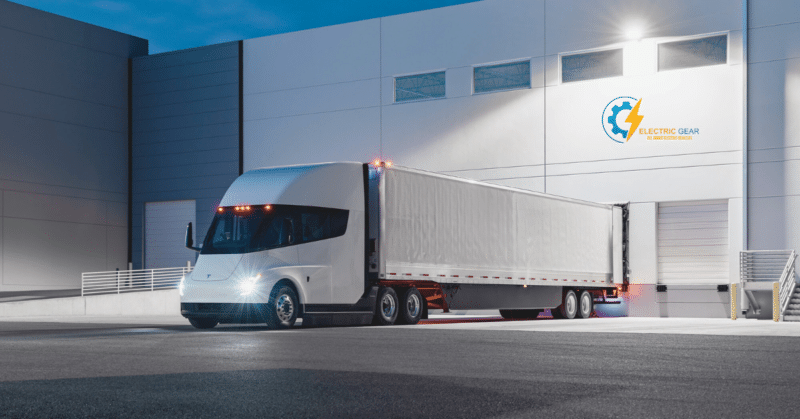Farming is an essential activity that feeds billions of people around the world. However, it is not without its challenges, including the high fuel cost and the negative impact of farming on the environment. As a result, many farmers are turning to electric farm vehicles as a cleaner and more efficient way to farm.
What are Electric Farm Vehicles?
Electricity instead of fossil fuels power electric farm vehicles. They include tractors, harvesters, sprayers, and other vehicles commonly used in farming.
These vehicles have batteries that can be charged from a wall outlet or a solar panel. They produce zero emissions, making them an eco-friendly alternative to traditional farm vehicles.
Some Electric Farm Vehicles
1- Electric Tractors
Farmers’ use of electric tractors is a growing trend. Plowing, fertilizing, and planting are only some of their many uses. These vehicles are an environmentally beneficial replacement for conventional diesel tractors because of their zero-emission battery power.
The Solectrac Electric Tractor has a four-hour working time and can be charged from any regular household outlet that provides 110 volts. The Monarch Tractor has self-driving technology and can be used for crop-specific harvesting.
2- Electric All-Terrain Vehicles (ATVs)
Farmers who need a speedy way to get around their property may find electric ATVs an excellent choice. They are versatile and can carry cargo, inspect fencing, and spray crops. Because they run on batteries instead of gasoline, these vehicles have a much smaller environmental impact.
Polaris’s Ranger EV can be charged from any regular 110-volt wall socket with a maximum range of 45 miles. The lithium-ion battery in the Kubota RTV-X900 Electric can be recharged in as little as 8 hours.
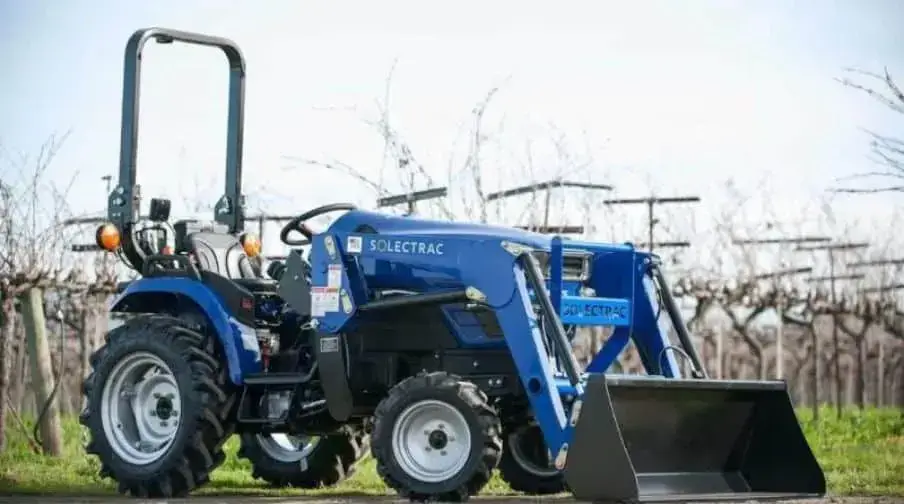
3- Electric Utility Vehicles (UTVs)
Utility vehicles (UTVs) are electric vehicles that can tow and carry more than electric ATVs. They work great for hauling supplies, machinery, and even workers on the farm.
Batteries provide electricity for these vehicles, making them a more environmentally responsible option than conventional UTVs that run on gasoline.
The John Deere Gator Electric can travel up to 35 miles on a single charge and can be charged from any household outlet that provides 110 volts. The Cushman Hauler Electric only needs 8 hours to charge fully with its lithium-ion battery.
4- Electric Sprayers
Electric sprayers spread chemicals like insecticides, herbicides, and fungicides to crops. Their precision and efficiency mean less pollution and reduced waste of potentially harmful substances.
These cars are more environmentally friendly than their gasoline-fueled equivalents since batteries rather than combustion engines power them.
While using a standard 110-volt outlet, the Berthoud Electric Sprayer’s battery may be charged in as little as 6 hours. The Electrostatic Sprayer was developed to reduce chemical waste while increasing spray coverage.
5- Electric Harvesters
Grapes, berries, and nuts are just some of the harvestable that may be picked with the help of electric harvesters. In addition to decreasing waste and enhancing crop quality, they are meant to be efficient and kind to the plants.
These vehicles are an environmentally beneficial replacement for conventional gasoline-powered harvesters because of their zero-emission operation.
The Oxbo 9120 Berry Harvester is a one-person operation for picking blueberries. The Pellenc Olive Harvester is a specially-made machine for gathering olives; it can be powered by electricity or a hybrid system.
Benefits of Electric Farm Vehicles
Cost savings
Farmers can save a lot of money using electric farm vehicles because electricity rather than fuel powers them. They eliminate a significant cost for farmers. In addition, the low number of moving parts in electric vehicles means they need less maintenance than conventional farm tractors.
Environmental benefits
Electric farm vehicles don’t emit harmful gases, so they don’t spread any pollutants. They are better for the environment than conventional farm vehicles since they do not contribute to noise pollution. Farmers may lessen their environmental impact by switching to electric farm vehicles.
Efficiency
Electric farm machinery exceeds its gasoline and diesel counterparts in terms of performance. As there are fewer moving components, they are more reliable and require less maintenance over time.
Because of this, you can rely on them more. In addition, electric vehicles’ immediate torque enables rapid acceleration and carrying considerable loads.
Versatility
Electric farm vehicles have multiple applications on the farm, including plowing, harvesting, and transporting. They are adaptable enough to be employed on slopes and other uneven landscapes.
Challenges of Electric Farm Vehicles
Limited range
The short range of electric farm vehicles is one of the most significant issues they present.
Electric farm vehicles—as against conventional ones that go for hours on a single tank of petrol before refilling—must be recharged more regularly. Farmers who are tasked with cultivating a vast land area may find this to be a difficult obstacle.
High initial cost
Because electric farm vehicles are still in their infancy, they are more expensive than their gasoline-powered equivalents. Farmers find it difficult to make the necessary investments for their purchases; as a result, especially those with low incomes.
Charging infrastructure
Charging stations for electric farm vehicles are still in the planning and development stages.
Electric vehicles can also be charged from a standard household 120-v socket, but the process can be time-consuming and may not be ideal for farmers who need to charge their vehicles frequently. Further, setting up a charging station may also be costly.
Are These the Best Alternatives to Conventional Farm Vehicles?
Electric farm vehicles can be a great alternative to conventional gasoline-powered farm vehicles, especially regarding their environmental impact and efficiency. However, whether they are the best alternative depends on the specific needs and circumstances of the farm.
For example, electric farm vehicles have several advantages over conventional vehicles, such as lower operating costs and reduced emissions. They can also be more efficient in power and torque, providing better performance in some situations.
However, they may not be the best choice for every task or situation, especially if the farm has limited access to charging infrastructure or requires vehicles with a more extended range.
In some cases, hybrids or alternative fuel vehicles (such as those powered by propane or biofuels) may be a better alternative to conventional gasoline-powered farm vehicles.
These vehicles can offer many of the same benefits as electric vehicles while providing the range and flexibility some farms require.
Ultimately, the best alternative to conventional vehicles will depend on the specific needs and circumstances of the farm. It may be helpful to evaluate different options and consider factors such as cost, environmental impact, performance, and available infrastructure when deciding.
Some Other Alternative Vehicles for Farming
Farmers have a variety of additional alternatives to electric farm vehicles to consider. Here is a quick rundown of a few of them:
Propane-powered vehicles
Farmers are increasingly using propane-powered vehicles. In particular, farms with limited access to charging infrastructure are more cost-effective than electric cars since they emit less pollution than gasoline-powered vehicles.
Biofuel-powered vehicles
They may be an excellent substitute for standard gas-only cars since they are propelled by ethanol or biodiesel. They may be more economical in certain circumstances and emit less pollution than gasoline-powered cars.
Hybrid vehicles
Hybrid automobiles combine the advantages of gasoline- and electric-powered automobiles. Unlike gasoline-powered vehicles, they can provide superior fuel efficiency and lower emissions while offering the range and flexibility that certain farmers need.
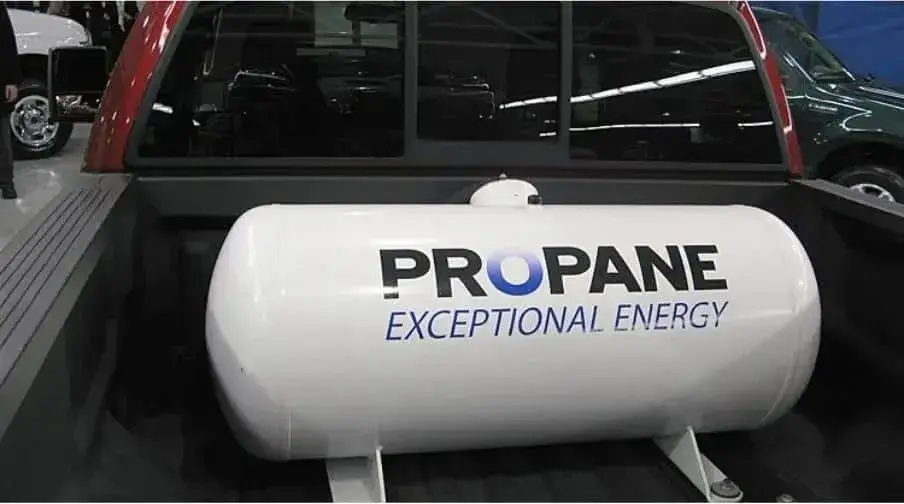
Automated vehicles
Farming is using more autonomous vehicles. They navigate and carry out operations like planting and harvesting without the assistance of humans, thanks to cutting-edge technology. This may assist in lowering labor expenses and boosting productivity.
Horse-drawn vehicles
While outdated, some farms still use horse-drawn vehicles. Smaller farms that don’t need as much power or speed may be a decent substitute for gasoline-powered vehicles.
Ultimately, the best alternative vehicle for farming will depend on the specific needs and circumstances of the farm. Factors such as cost, fuel and charging infrastructure availability, environmental impact, and performance should be considered when evaluating different options.
Heavy Duty Machinery and Electric Farm Tractors
To keep farmland in good shape, a lot of machinery and tools are needed. Even a small farm has a lot of land, so farmers first and foremost need vehicles to get around the farmland.
Landowners of all kinds are getting more and more interested in electric utility vehicles. People often use quad bikes or buggies to get around large estates or farms.
However, they have a lot of problems compared to electric vehicles. On the other hand, the second one makes less noise, costs less to run, and is generally thought to be safer.
Electric utility vehicles are becoming more popular on farms and pastures all over the country. They are also a good choice for people who own private estates. Farmers can use a lot less gasoline and diesel if they can lower their operational costs.
Electric cars are also more useful than ever because they come in different styles and because electric utility vehicles are now available. With these new features, farmers can move important goods around the farm without using too much power.
Electric farm vehicles are used to get around on different types of land, but they aren’t the only electric vehicles used on farms. In reality, the electric revolution is changing everything about farm tools and machinery.
Sustainability of Electric Farm Vehicles
Sustainability is a big deal in every industry, but it is especially important in agriculture. Farmers are being told to do things that are better for the environment because business owners are under more pressure to cut their carbon emissions.
Also, customers are becoming more aware of sustainability when making decisions about what to buy.
There is a clear need for more food that comes from sustainable sources, and many people choose items that don’t release any carbon emissions.
As countries try to meet coming emissions limits, they will put more and more pressure on farmers all over the world to reduce their carbon footprint and use more sustainable methods.
Electric farm vehicles can help with this, which is good news. Electric cars don’t put out any pollution from the tank to the wheels, which makes them much better for the environment than diesel or gasoline engines.
By switching to battery-powered vehicles, farmers can reduce their carbon emissions by a lot and avoid unwanted side effects.
But that’s not all that’s good about sustainability. Home and business owners can now get green electricity, depending on which source they choose.
Some suppliers only offer a small amount of green electricity, but others can already give consumers and businesses electricity that is 100 percent green.
Future of Farming with Electric Vehicles
Even though electric tractors and harvesters that run on batteries won’t be used commercially for a while, many farmers are already making use of electric vehicles.
Electric utility cars are common on farms, estates, and smallholdings, so it’s clear that electric-powered vehicles have already helped a lot of people.
Even though there are good reasons to worry about the use of electric machinery in agriculture, battery-powered farming tools are already on the way.
If problems like charging downtime and the lack of the right infrastructure can be solved, it looks like farmers all over the world will soon be able to use electric farm equipment.
Even though diesel and gas engines are used a lot in agriculture, it shouldn’t be a surprise that the industry is one of the first to adopt new technology.
Farmers are known for being creative, and their success depends on their willingness to try new things and use the most cost-effective methods.
Frequently Asked Questions
Are their electric farm vehicles?
Indeed, electric agricultural vehicles, such as tractors, utility vehicles, and ATVs, are available on the market. Besides decreasing operating costs and harmful emissions, they also operate more quietly. The cost of these vehicles is decreasing with the advancement in technology.
Can farm tractors be electric?
Electric farm tractors are available in the market, providing advantages such as cheaper running costs, fewer pollutants, and quieter operation. Electric tractors are becoming a feasible choice for many farmers as technology improves and becomes more inexpensive.
Is there an electric UTV?
The market does indeed currently provide electric utility vehicles (UTVs). These electric UTVs have a wide range of applications on farms, from moving workers and materials to reducing noise and pollution.

Imran is an experienced content writer who crafts engaging and informative articles for a variety of industries. With a keen eye for detail and a passion for storytelling, Imran delivers high-quality content that resonates with readers. Whether he’s writing blog posts, social media content, or website copy, Imran is committed to delivering compelling content that drives results.

